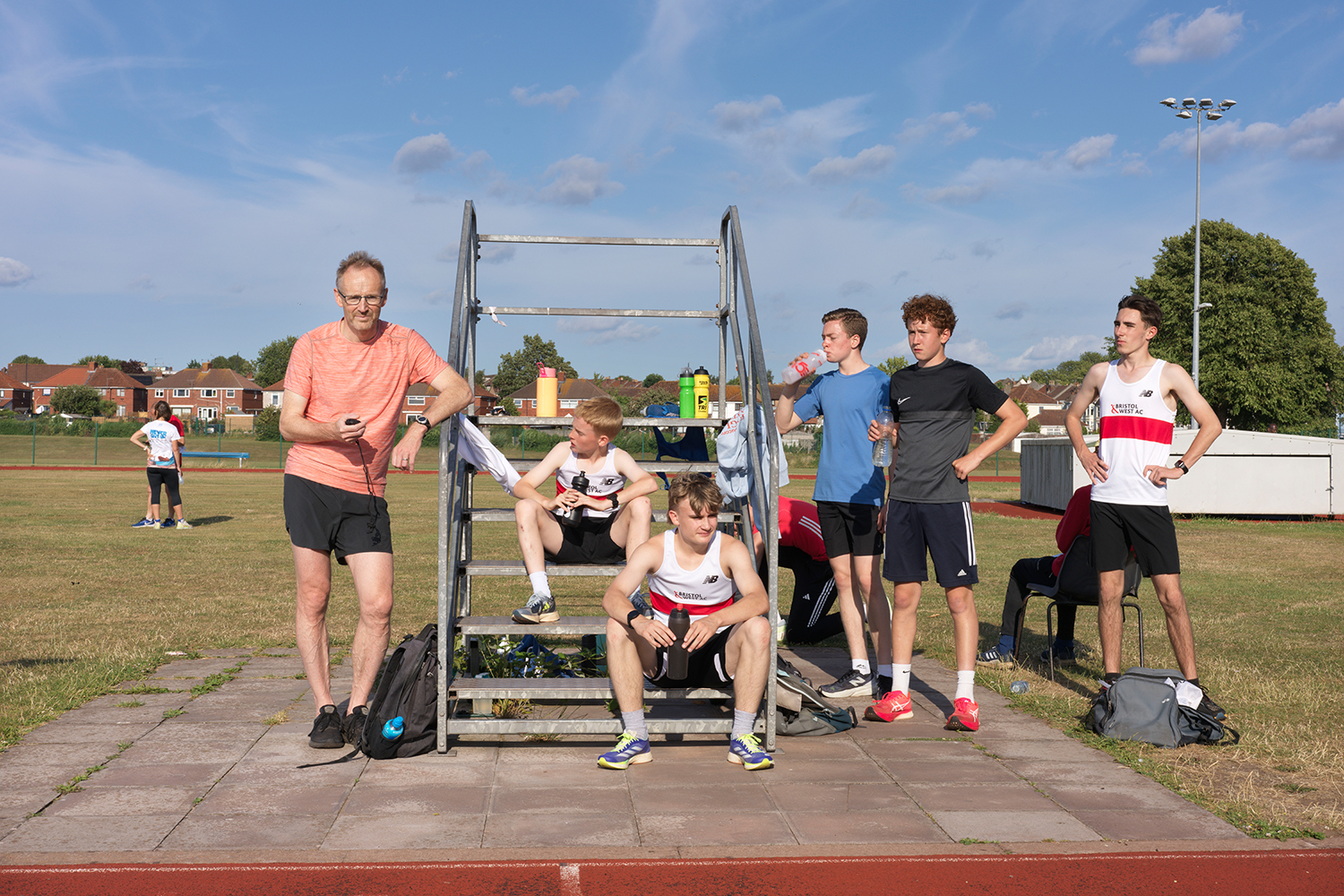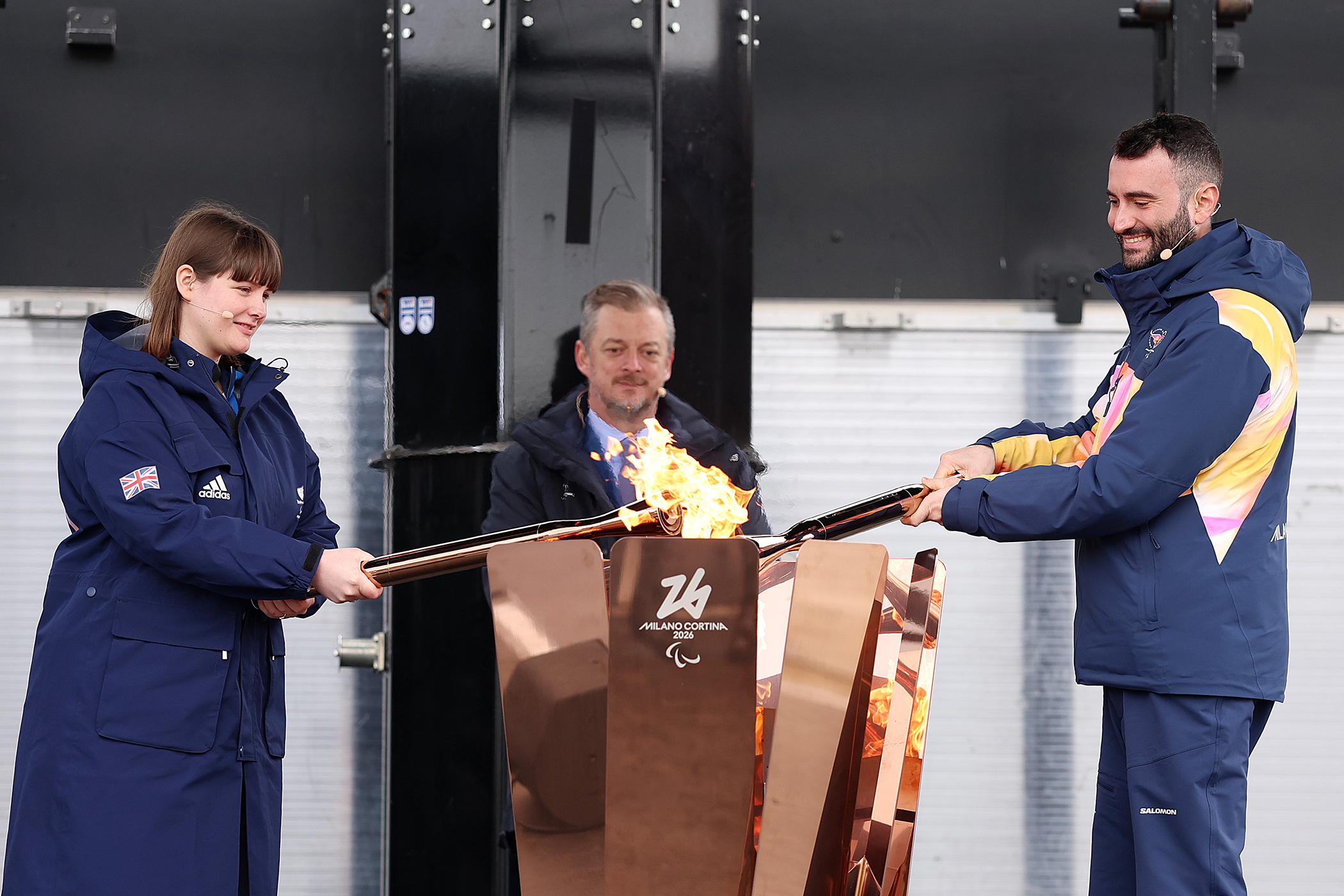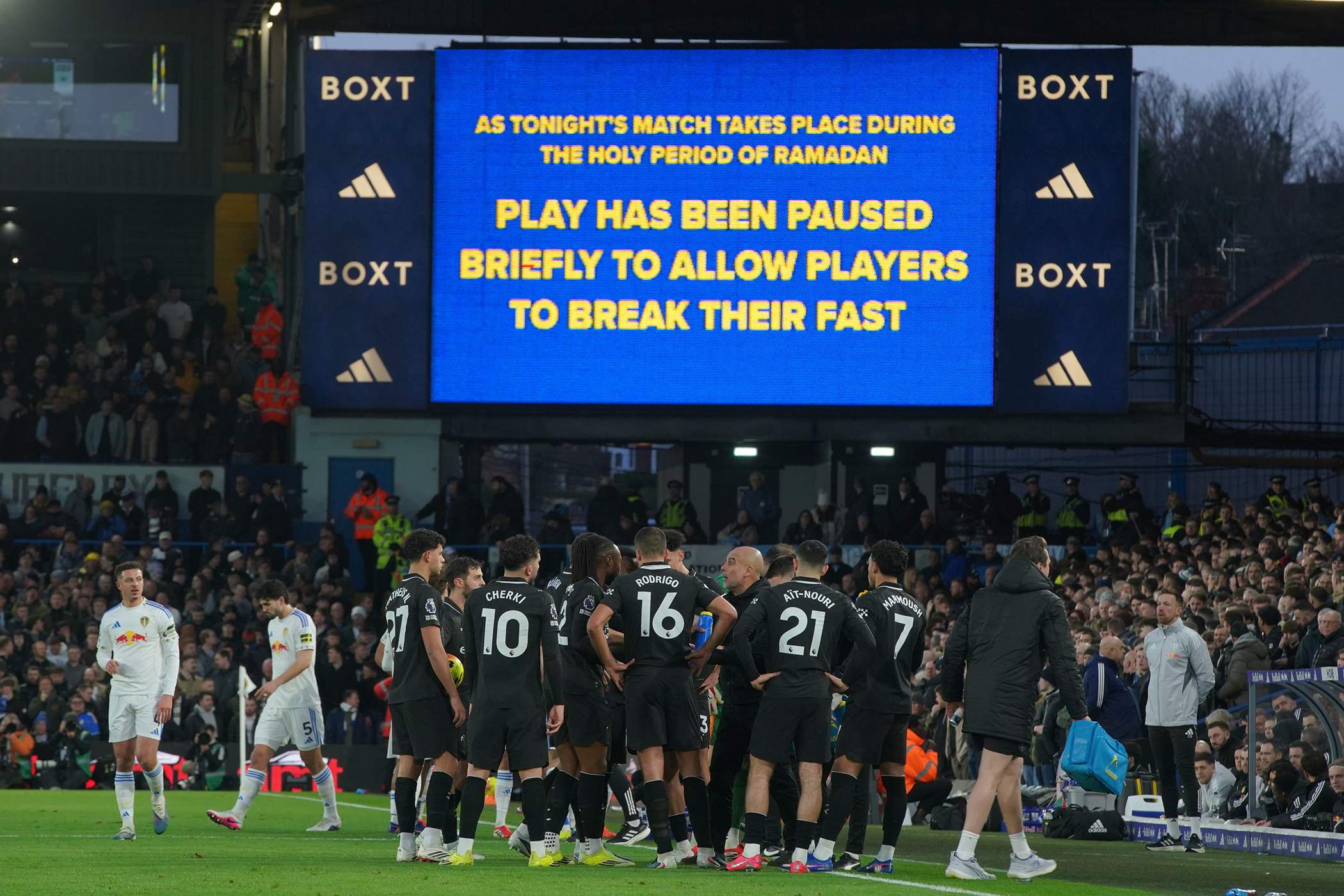Photograph by Karen Robinson for The Observer
It’s the best view in Bristol, it’s just that runners don’t appreciate it. High above Isambard Kingdom Brunel’s Clifton Suspension Bridge and the spectacular Avon Gorge is the Clifton Observatory, beloved by tourists on a sunny day for the best selfie in town. For an athletics coach, the draw is more the steep climb up to that point, which is preceded by a long hill. It’s here you will find us hill training in December, a group of teenage boys and a couple of adult coaches struggling through the sleet, high winds and freezing temperatures. At least I don’t need to drive up there, though I do need to get to the top of the lung-shattering, strength-building hill before the teenagers do.
And believe me, they’re quick. One is a national 800m champion and almost all represent the county.
The illuminated view remains spectacular at night, but distracted by frost-bitten fingers, rain-lashed cheeks and reeling from sheer exhaustion, the lads seem not to appreciate it fully. For 30 years I have mixed with athletics and football coaches – talking to people such as Carlo Ancelotti, Rafa Benítez and José Mourinho in my job as a football writer. When I reported on four Olympic Games and five World Athletics Championships, Lord Coe frequently shared stories of his father Peter, a groundbreaking and inspirational coach in the middle-distance running community. (Though I won’t be using his most famous line, delivered after Coe’s 1980 Olympic 800m silver medal: “You ran like a ****.” That doesn’t feature in the 2025 UK Athletics Coaching manual under psychological-wellbeing support).
A close friend was the late Mike McFarlane, fifth at the 1984 Olympic 100m and arguably Britain’s best-ever sprints coach. He would share strategies, tactics and plans, but I was still an outsider looking in.
Three years ago I was drawn into UK Athletics’ coaching pathway to assist at Bristol and West AC. As I studied to become a Level 2 coach – I’m awaiting results on my final test – I’ve been sucked into an alternative universe of the sporting world. No longer the know-it-all reporter on the sidelines, explaining to coaches where it all went wrong, suddenly my ideas, tactics and training plans were under scrutiny.
Aided by my coaching mentor Ali Hurford, we found ourselves helping one of the country’s best young middle-distance runners, Ewan Sparey, navigate his way through his first international races for England. I wasn’t anticipating working out how to win national titles, albeit schoolboy ones, quite so soon.
It helps that I once ran 800m and 1500m at a national level under one of the UK’s best-ever youth middle-distance coaches, George Harrison. In my old training diaries are years of his sessions handed down as though on tablets of stone. He himself was mentored by a Yoda-like figure in John Hovell. When Seb Coe went to London to prepare for the 1984 Olympics (he won), it was Hovell that Peter Coe trusted to oversee his athlete. And stood in a field in Easton, the inner-city venue where we train far from the Clifton tourists, with rain lashing down (again) on a dark winter’s night I found myself channelling my old coach, who died in 2023 aged 90. The night hadn’t gone well. The climax of the schoolboy cross-country season, the English Schools’ Championships, was four months away. Make the top eight there and you win your England Schools vest, a huge chance for someone like Sparey. But that night, it looked a distant dream.
“Trust the process, Ewan,” I found myself saying, a line I might once have considered coach-speak cliche. “We have four months. These are the sessions. This is what will happen: you’ll be 100% better in January. In February, you’ll be coming into form. In March, come the English Schools, you’ll be in perfect shape.”
Though I knew it to be true, I also felt incredibly vulnerable; a promise had been made, a bond of trust established which could go either way. I recalled George Graham, who dramatically switched his tactical set-up to a back three prior to the 1989 title showdown at Anfield, where Arsenal had to win 2-0 to wrest the title from Liverpool. His players were confused and lacking belief. “Here’s what’s going to happen,” Graham said. “We’ll keep it tight, they won’t get any joy down the wings. In the second half we’ll play more freely. We’ll score. They’ll panic. Fifteen minutes to go, I’ll change the system and we’ll win this 2-0.” That is precisely what happened. Was Graham a mystic? Did he manifest the performance with the power of auto-suggestion?
Newsletters
Choose the newsletters you want to receive
View more
For information about how The Observer protects your data, read our Privacy Policy
That March, Sparey came sixth at the English Schools’ Championships and ran for England; in July he won the English Schools 800m title. Since then, he has stepped up again, earning himself an Adidas kit deal, an additional responsibility of coach/agent. Ninety-five per cent of this is down to an athlete’s talent. I think the coach just adjusts the angle of the sails on the ship rather than supplying the actual power.
With the help of Chris Palmer, another mentor, we work on technique. You can tell a coached runner by the way they move efficiently. With strength and conditioning, we develop all-round core strength. We talk tactics, explain when to make a move in a race. Gazing, a company that worked with the All Blacks, advises our athletes on race-day mindset.
Yet on a rainy field speaking to an England hopeful, I felt my old coach George on my shoulder, reminding me of his sessions that had worked for scores of his international athletes. I was also channelling José, Carlo and Rafa and realising how precarious the job is. They are tactically brilliant, yet their biggest skill remains their ability as mentor-psychologists to young men. And under constant unbearable scrutiny. I’m learning well away from the noise of know-it-all journalists, amplifying my every error. Though naturally I am still happy to do that in my day job. Just maybe with a degree more insight than before.
Photograph by Karen Robinson for The Observer


